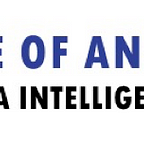LIMITS of SQL — Indeed there is a Better, oh… Best Alternative! Called ‘Python Analytics Stack ‘— Details Below)
The SQL is not an analytics tool, though it will give great summary tabulations, and users of SQL would like to claim that they are doing analytics.
If your organization is fully dependent on SQL to do what you think is analytics, then you are leaving much on the table.
Here is a gif that explains how far it can go in the direction of the full range of analytics functions.
SQL can not go beyond descriptive, and possibly some diagnostics in explaining the situation in the data intelligence.
This is only one third of the analytics maturity pathway according to Thomas Davenport — “Competing on Analytics: The New Science of Winning; With a New Introduction — Harvard Business Review Press”, and I agree.
So what are the things you are missing dearly ?
First and foremost any analytics in a true sense or, of course, the advanced analytics, is often involves combination of multi-source datasets and it is commonly referred as ‘DataLake’.
SQL does not work with DataLake, directly.
On top of this, SQL can not do the following, though SQL would like to claim some of these which are none the less low grade analytics pathway.
- Predictive analytics of any sort
- Serious recommendation engine
- All kinds of supervised algorithms
- All kinds of unsupervised algorithms
- All kinds of sophisticated ML-AI topics
- I do not want even go to the list of Deep Learning applications.
So, go for these high premium value works and take your department to next level of analytics applications, with Python, Pandas, Numpy, Machine Learning, Scikit-learn, Deep Learning tools!
Let us call this Python Analytics Stack, in short.
Remember, your Pandas can do the SQL, by the way!
